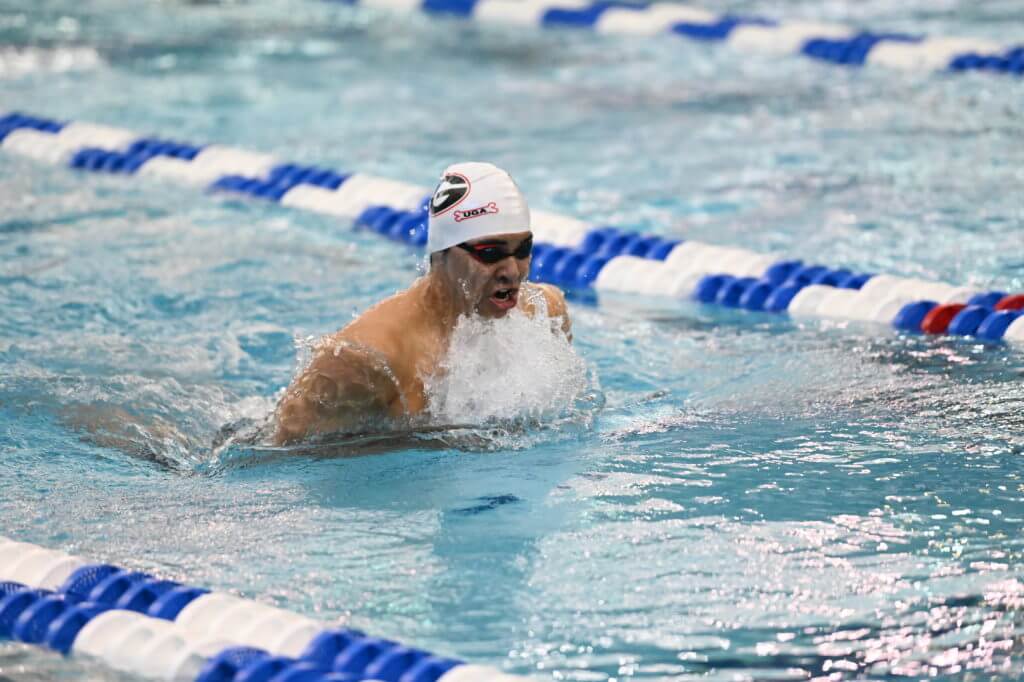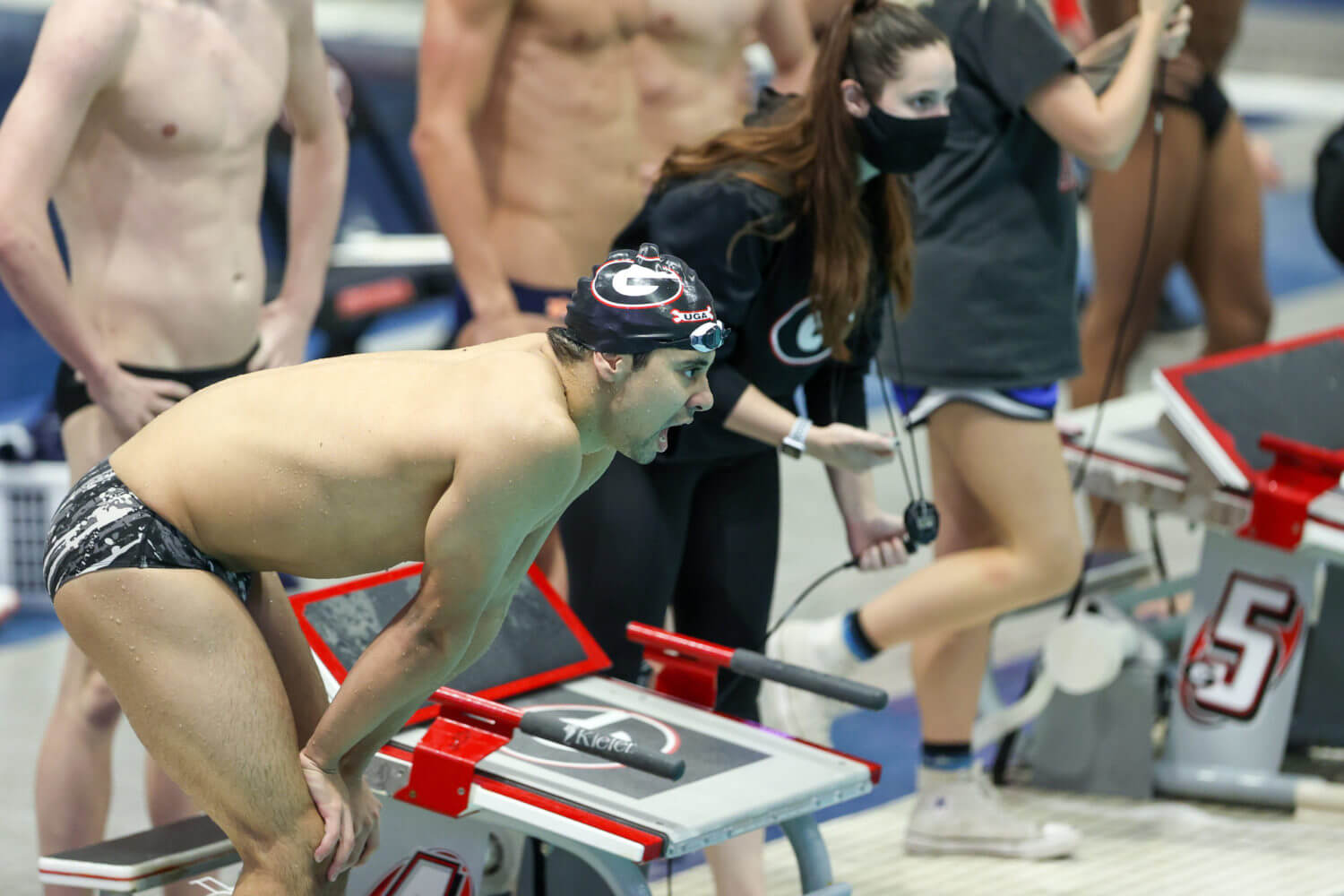World Cup Swing Shows Relay Potential of Javier Acevedo, Canadian Men

World Cup Swing Shows Relay Potential of Javier Acevedo, Canadian Men
It was a little tough to keep up with, all the breaking and re-breaking of records by Canadians during the recent FINA World Cup. But the end product, given what records went down, bodes well for the future of the Canadian men’s swim team.
Javier Acevedo now owns all three backstroke records in the short-course pool. He re-set the 50 and 100 back in both the Berlin and Indianapolis stops last week, lowering the latter to under the 50-second threshold at 49.71. He also clipped a half-second off Markus Thormeyer’s 200 back record to 1:49.74 and took down teammate Finlay Knox’s 100 individual medley mark.
Soon to turn 25 and with two Olympics under his belt, it’s possible the former University of Georgia swimmer is coming up on a late-career peak for himself.

Javier Acevedo; Photo Courtesy: Chamberlain Smith / Georgia Athletics
Just as impressive is what Ilya Kharun accomplished at the meets. He took down records in the 50 fly and 100 fly that had belonged to Josh Liendo, including taking the 100 fly mark to 49.94. Kharun also turned in a 1:51.70 in the 200 fly, which lopped 1.23 seconds off Acevedo’s record from last year.
Kharun might well be the game-changer for Canada. He trains at Sandpipers at Nevada, one of the top sources of young talent to the United States, and he’ll make his debut for Team Canada at the FINA World Championships (25M) this December. He had been slated to represent the United States last summer at the Junior Pan Pacific Championships before an issue of his citizenship surfaced. (As such, the national age-group record for 15-16 in the 100 fly that he set last December has been expunged.)
With the success at the World Cup meets, Canadians have had 15 record-setting swims in short-course pools this fall, 10 on the men’s side and five for the women. That’s in addition to eight long-course marks set over the summer, and it’s before the fall’s peak meet in Melbourne at Worlds.
Beyond that, though, the speed of Acevedo and Kharun opens up new possibilities on the relay front. The Canadians are coming off an impressive pair of 400-meter relays at the Tokyo Olympics. The medley relay shocked many by making the final, finishing seventh. The 400 free missed a medal by just six-tenths, setting a national record, though that foursome must replace the since re-retired Brent Hayden. (Thormeyer was on both relays squads, and he’s had a quiet 2022 on the competition side.)
Kharun opens news possibilities for Canada. He’ll turn 18 in February and has pledged his college future to Arizona State. His butterfly speed solidifies Canada’s medley relay, allowing Liendo to move to the anchor leg and swim freestyle. That’s three legs sorted.
That leaves only the breaststroke question – Gabe Mastromatteo, who earned the honors in Tokyo, was the slowest of the eight finalists by more than a half second and the second-slowest among the 14 legal relays in prelims. Help may be on the way there, too, with a Canadian record in the 50 breast having been set last spring by Apollo Hess (26.65) of the University of Lethbridge at the U SPORTS Championships.
CANADIAN RECORD 🇨🇦
Apollo Hess from the University of Lethbridge sets a new Canadian and U SPORTS record in the men’s 50m breaststroke with a 26.65 pic.twitter.com/fm9S74smgr
— CBC Sports (@cbcsports) March 26, 2022



